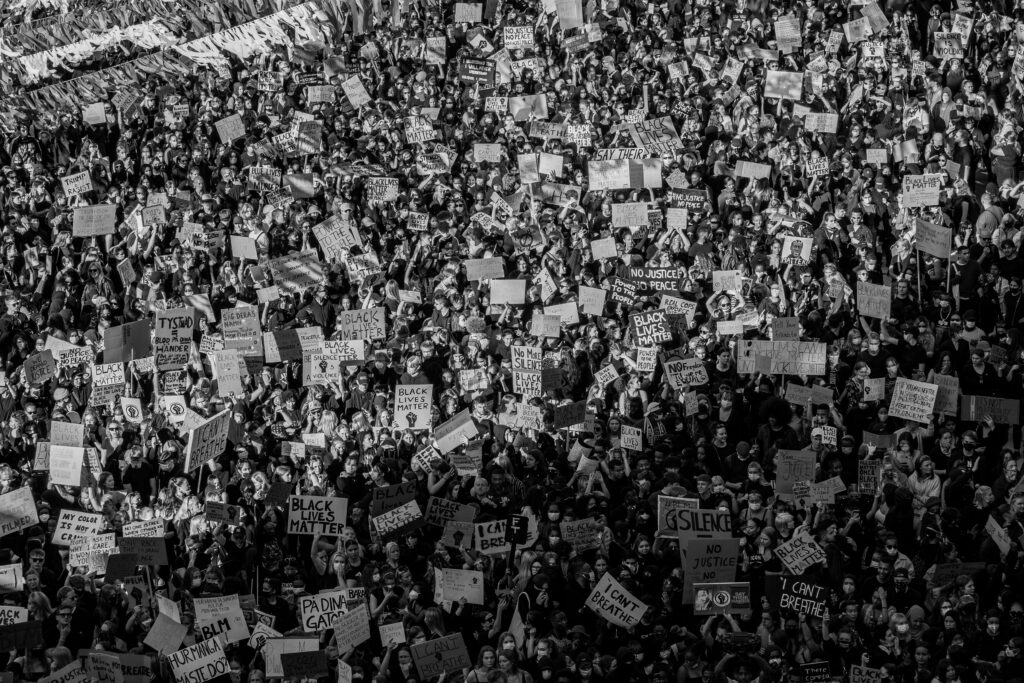
So we begin with the Scripture’s overarching principle for our existence: it’s doxological; we live for the glory of God (1Co 10.31).
What else applies to questions of protest?
Brokenness
Key to our decision making is worldview: what is the story we find ourselves in the middle of? And from the Scripture we learn that the world is broken. That’s no surprise to us, of course; we can see that by just taking a casual look around. But the Bible places that brokenness in context, giving us a foundation from which to deal wisely and effectively with it.
Sin has damaged God’s creation (Ge 3.1-19; Ro 8.22-23). It has rendered us broken as people (Ro 3.9-19), and it has broken our environment and our circumstances. What we see in the chaos around us, then, makes sense; it is what we should expect.
The world is broken because we broke it—and we are thus broken too. The problem is inherent to us, deep within our spiritual DNA. How likely is it that the solution to this brokenness will come from those who caused the problem in the first place?
But then again, shouldn’t we try? Does the Scripture encourage us to be passive about evil and wait for God to fix it supernaturally, or does it urge us to take action? I think that question answers itself.
Order
It turns out that the lunatics are not in fact running the asylum. There is a God in heaven, whose will is done (Da 2.28, 37, 44). He is taking the chaos that we created and ordering it to achieve his purposes—sensible purposes, good purposes (Ps 37.23). Events are not random, and causes and purposes are not entirely visible and obvious.
A significant part of that purpose and plan is that God is using hardship to strengthen and develop his people, the way a coach pushes his athletes to develop championship caliber in them (2Co 3.18; 4.16-18). God is greater than evil and injustice. He directs us and sustains through those things purposefully, in order to accomplish His goal in us.
Authority
God has established spheres of authority for us. These include the home (Gen 2.22-25), the state (Gen 9.6), and the church (Acts 2.41-47). These authorities, like us, are also broken; parents, political leaders, and pastors are all sinners and prone to grievous error. But they are authorities nonetheless, because God has ordained them for us. It is no accident that we have the parents, state, and church that we do.
These authority structures have spheres, where God has given them authority to operate. As just one example, Jesus was asked if the Jews ought to pay taxes to Caesar (Mt 22.17). We all know that he asked to see a coin, and he pointed out that Caesar’s image was on it—therefore it must belong to Caesar (Mt 22.18-21). What he didn’t say, but clearly implied, was that what had the image of God on it belonged to God; the citizen, as one bearing the image of God (Ge 1.26-27), does not belong to the state, but to God. The state’s authority is limited.
And most especially, all these institutions are under God’s authority, for it is from him that they have any authority in the first place. If a human authority—family, state, or church—asks me to do something that violates God’s will as revealed in the Scripture, then I must disobey (Ac 5.27-29).
This means, of course, that we are all responsible to educate our minds and our consciences from the Scripture so that we can choose biblically in those moments of apparent conflict.
These biblical principles, I think, give us a solid basis for a philosophy of protest and guide us to a proper course of conduct in choosing when and how to obey, to protest, and, if necessary, to disobey.
We’ll get more specific in the next post.
Photo by Teemu Paananen on Unsplash

Leave a reply. Keep it clean.